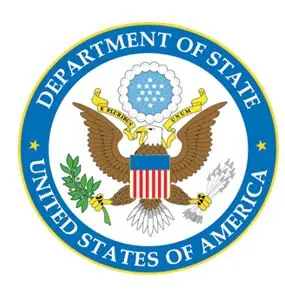

The U.S. Department of State, the Bezos Earth Fund, and The Rockefeller Foundation announced next steps for the future governance and structure of the Energy Transition Accelerator (ETA), a high-integrity carbon finance platform aimed at catalyzing private capital to support ambitious just energy transition strategies in developing and emerging economies. The Center for Climate and Energy Solutions (C2ES) will serve as the ETA's secretariat, and former Secretary of State John Kerry will serve as honorary chair of the ETA's newly established Senior Consultative Group.

The announcements at the National Museum of American Diplomacy at the U.S. Department of State are the latest steps in the ETA's establishment as an independent initiative. The ETA partners began their collaboration at COP27 in Sharm el-Sheikh, Egypt. After a year of extensive consultations with government, business, and civil society stakeholders, the partners released the core ETA Framework at COP28 in Dubai, United Arab Emirates, as several major companies and countries declared their interest in engaging in the continued development of the groundbreaking initiative.
"We must deliver innovative finance solutions at the speed and scale needed to transition to clean power and keep 1.5 degrees within reach. Working in partnership with developing countries, the ETA can mobilize billions to transition away from fossil fuels and achieve an ambitious, just clean energy future," said John Kerry, former Secretary of State and former U.S. Special Presidential Envoy for Climate. Secretary Kerry led the Department of State's engagement as a founding partner of the ETA from 2022-2024. Secretary Kerry was joined on stage by John Podesta, Senior Advisor to the President for International Climate Policy.
The ETA will pioneer an innovative sectoral-scale carbon crediting standard enabling developing countries to generate high-quality carbon credits as a way to finance their transition from fossil-generated to clean power. According to preliminary estimates, the ETA could generate tens of billions of dollars in transition finance through 2035.
The three ETA partners announced several key steps for the work ahead in 2024 and beyond, including:
Building on the core framework presented at COP28, the partners outlined the ETA's governance and management structure, to be further elaborated in consultation with ETA stakeholders, available at https://www.etaccelerator.org/
The Center for Climate and Energy Solutions (C2ES), led by President Nat Keohane, will serve as the ETA's secretariat. C2ES has served as a lead coordinator of the ETA since the concept was introduced at COP27
The ETA partners established a new Senior Consultative Group to provide independent input on the ETA's design and operation, to be chaired by Secretary Kerry. Additional members will include Fatih Birol, Executive Director, International Energy Agency, Arunabha Ghosh, Founder-CEO, Council on Energy, Environment and Water (CEEW), Rachel Kyte, Co-Chair, Voluntary Carbon Markets Integrity Initiative (VCMI), Annette Nazareth, Chair, Integrity Council for the Voluntary Carbon Market, Mary Nichols, Vice Chair, California-China Climate Institute, Damilola Ogunbiyi, Special Representative of the UN Secretary-General, and Chief Executive Officer for Sustainable Energy for All, Co-Chair UN-Energy, and Vera Songwe, Co-Chair, High Level Expert Group on Climate Finance
The Dominican Republic announced the formation of an inter-ministerial working group led by the Ministry of Energy and Mines to guide its engagement as an ETA pilot country, and ongoing support from the World Bank to model energy transition pathways and the catalytic role of carbon finance
The government of the Philippines announced that it will participate in the ETA as an observer country to develop a deeper understanding of the initiative and its potential to mobilize finance supporting the country's energy transition. The Philippines also hopes to inform the global energy transition dialogue through its unique perspective of a privately-owned, market-driven, and unsubsidized power sector
At the event, the ETA partners and the World Bank highlighted the deepening strategic collaboration between ETA and the World Bank, including its Scaling Climate Action by Lowering Emissions (SCALE) partnership. SCALE aims to mobilize finance for effective energy transitions by enabling developing countries to be directly rewarded for verified emissions reductions from a pool of payments committed by public and private sector contributors.
According to the International Energy Agency, clean energy investment in developing and emerging economies excluding China must increase seven-fold to $1.9 trillion a year by the early 2030s to keep a 1.5°C limit on warming within reach. The ETA brings together governments and private sector stakeholders to employ high-integrity carbon crediting to accelerate the transition from fossil fuels to clean power in developing countries, delivering faster, deeper greenhouse gas reductions and improving the lives of vulnerable people. The sectoral-scale crediting approach being pioneered by the ETA will incentivize participating countries to intensify their near-term activities contributing to power sector decarbonization, including to deploy clean power, retire fossil fuel assets, enhance storage capacity, transmission, and distribution, and implement new policy.

